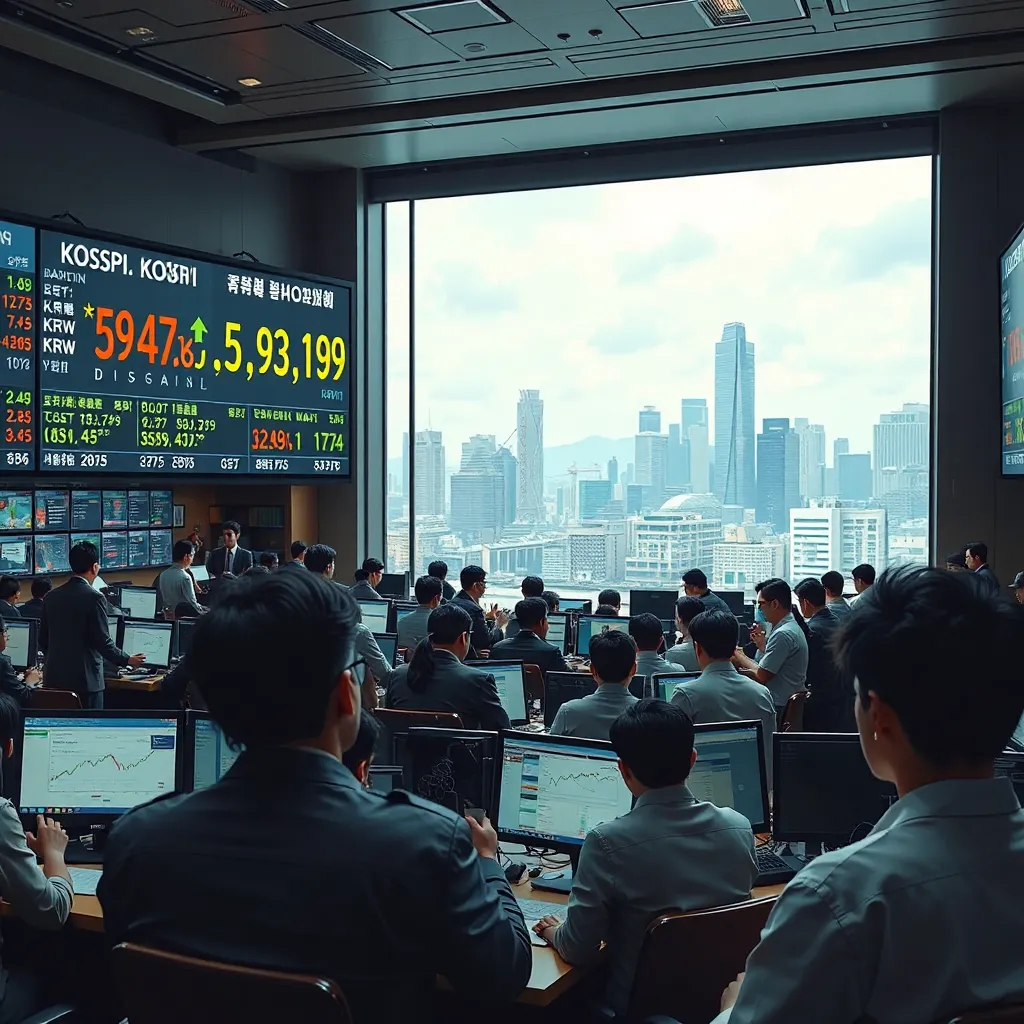
The economic fallout from a successful coup or sustained political instability in South Korea would have profound global implications. South Korea is a key player in several critical industries, including electronics, automotive manufacturing, and shipbuilding. Disruptions in these sectors could send shock waves through global supply chains and markets.
Market Volatility
The South Korean stock market (KOSPI) and the national currency, the Korean won (KRW), have already experienced significant volatility in response to the unfolding events. If the political situation continues to deteriorate, further declines in both markets are likely, undermining investor confidence and potentially leading to capital flight. This could cause ripple effects across global financial markets.
Foreign Investment
Political instability is a major deterrent to foreign investment. If the crisis continues, international companies may delay or cancel planned investments in South Korea, hindering economic growth and potentially resulting in job losses, particularly in industries dependent on foreign capital.
Tourism
The tourism industry, a significant contributor to South Korea’s economy, could be severely impacted. Travel advisories and concerns about security could discourage foreign tourists from visiting, leading to losses in the hospitality sector and related industries. This could further strain South Korea’s economy.
Supply Chain Disruptions
South Korea plays a pivotal role in global supply chains, particularly in the production of semiconductors, electronics, and automobiles. Political instability could disrupt manufacturing and logistics, affecting industries around the world. Such disruptions could result in delays in the delivery of essential goods, impacting everything from consumer electronics to automotive production.
Decline in Consumer Confidence
The political uncertainty could erode consumer confidence within South Korea. As fears over the political situation mount, consumer spending may decrease, which would negatively affect domestic businesses and further slow economic growth. Reduced consumer confidence could have a lasting impact on sectors such as retail, real estate, and services.
Credit Rating Impact
Global credit rating agencies are likely to closely monitor the situation. Extended political instability could lead to a downgrade of South Korea’s credit rating, increasing borrowing costs for both the government and businesses. A downgrade would make it more expensive to finance government projects and could discourage investment.
International Response and Outlook
The international community is closely watching the situation, with many urging all parties to engage in dialogue and work towards a peaceful resolution. The United States, a key ally of South Korea, has expressed concern over the events and is expected to play an important role in influencing the international response. The actions of other global powers will also be crucial in determining the outcome of this crisis and shaping South Korea’s future stability.
Conclusion
The alleged coup attempt in South Korea presents a serious challenge to the country’s political stability and its economic prospects. While the situation remains fluid, the potential economic repercussions are substantial. A swift and peaceful resolution is critical to mitigating economic damage and restoring confidence in South Korea’s political and economic systems. Ongoing updates and analysis will be essential to fully understand the extent of the economic fallout. Close monitoring of market trends, government actions, and international responses will provide key insights into the long-term consequences of this developing crisis.







